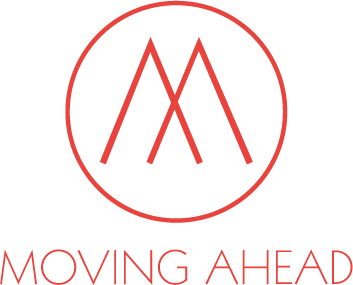Meet Gini and eccie newton
In conversation with: Eccie and Gini Newton, founders of Karma Cans and Karma Kitchen
Entrepreneurs Eccie and Gini Newton, founders of Karma Cans and Karma Kitchen, know a thing or two about pushing through barriers to turn their vision into reality. Having recently secured £250m in funding to extend their operations across Europe, the powerhouse sisters joined the Moving Ahead Gender Balance Summit and talked about their start-up journey with NatWest Group Director, Women in Business, Yvonne Greeves.
The Rose Review of Female Entrepreneurship, published in 2019 and commissioned by HM Treasury, revealed that women are half as likely as men to be involved in starting their own businesses. More recently, Moving Ahead’s report Advancing Female Entrepreneurship published in collaboration with NatWest further outlines some of the barriers and issues around gender equality in entrepreneurship - and importantly some of the initiatives that can be used to support more females to set up and scale a business.
Tenacity and initiative are characteristics familiar to Eccie and Gini are no stranger to, having started their first business, catering firm Karma Cans, in 2014 at the ages of 21 and 23. It now delivers 1000 meals a day and is a business that has been built on revenue, without investment. Moving kitchens three times in one year in the early days of the business, they finally decided to build their own space, which eventually led to the creation of their second business, Karma Kitchen to meet the needs of people in the food and drink industry who were struggling to find a space to scale in.
However for the young entrepreneurs, the road ahead still required good grip, something provided by self-belief and confidence. “We take a lot of risks,” Gini told Yvonne Greeves, Director, Women in Business, NatWest Group. “It’s a key part of our personalities. Another key thing, she insists is not to be scared of competition – as it’s really proof of concept,” noting that Karma Cans was set up pre-Deliveroo, a company which she says was eventually pivotal to changing the mind set of people around food delivery.
Working together has allowed them to benefit from invested partner support and different perspectives. “We challenge each other on pretty much every major decision. It's always collaborative. When you hit a barrier, the other person will step in and think about something in a different way. That's a quality that seen us through so many tough times,” says Eccie.
And not being scared to fail is another hallmark of their bold business strategies. “You only learn from failure. We have failed so many times, and we will fail again, and we’ll pick ourselves up. And that's just part of the business world,” says Gini. “Sometimes, though, you just need to take the leap and put yourself in that environment of uncertainty and be comfortable with it, in order to start pushing it forward more and more. Because when you make that's when you make the most progress.”
If getting comfortable with a lack of uncertainty is one of the keys to entrepreneurship, getting past a lack of self-belief and barriers when it comes to funding are also pivotal on any journey to success for women - still receiving only one per cent of all VC funding in the UK. Widening the access to the resources to set up and scale companies, as well as increasing the mindset to pursue that funding, are crucial in accelerating the numbers of female-founded businesses. And within that, increasing the levels of gender parity in the leaders of venture capital funds to 50 per cent is a necessary lynchpin to progress, notes Eccie.
For the Karma Cans founders, setting the culture of their own business early on had a big impact on their confidence to secure funding. For the first five years, their team and the majority of their client contacts were female, something that Eccie notes had a big impact. “By the time we started Karma Kitchen and started interacting with funders and bigger businesses we'd already had five years of being validated by making our own money in a workplace that was defined by us, and that changed our perception of what was out there. We thought, we’ve proved our concept, why not take the next step? Why shouldn't we be the ones?”
It’s clear that for these two inspirational entrepreneurs, doing it your way is the key to real success. And it’s that sense of the possible they want to encourage more female entrepreneurs to embrace to drive them forward.
“The one thing I’d say to female entrepreneurs is to create your own space, one that suits you. Do your own thing early, and don't try to conform too much to a workplace that wasn't really created or designed for you [as women], because that can take away some of your self-confidence.
“We now feel that we can approach investors with confidence because we've got a proven track record of delivering strong revenues year-on-year — in a culture that we defined for ourselves.”
A truly inspirational Gender Balance Summit session!


